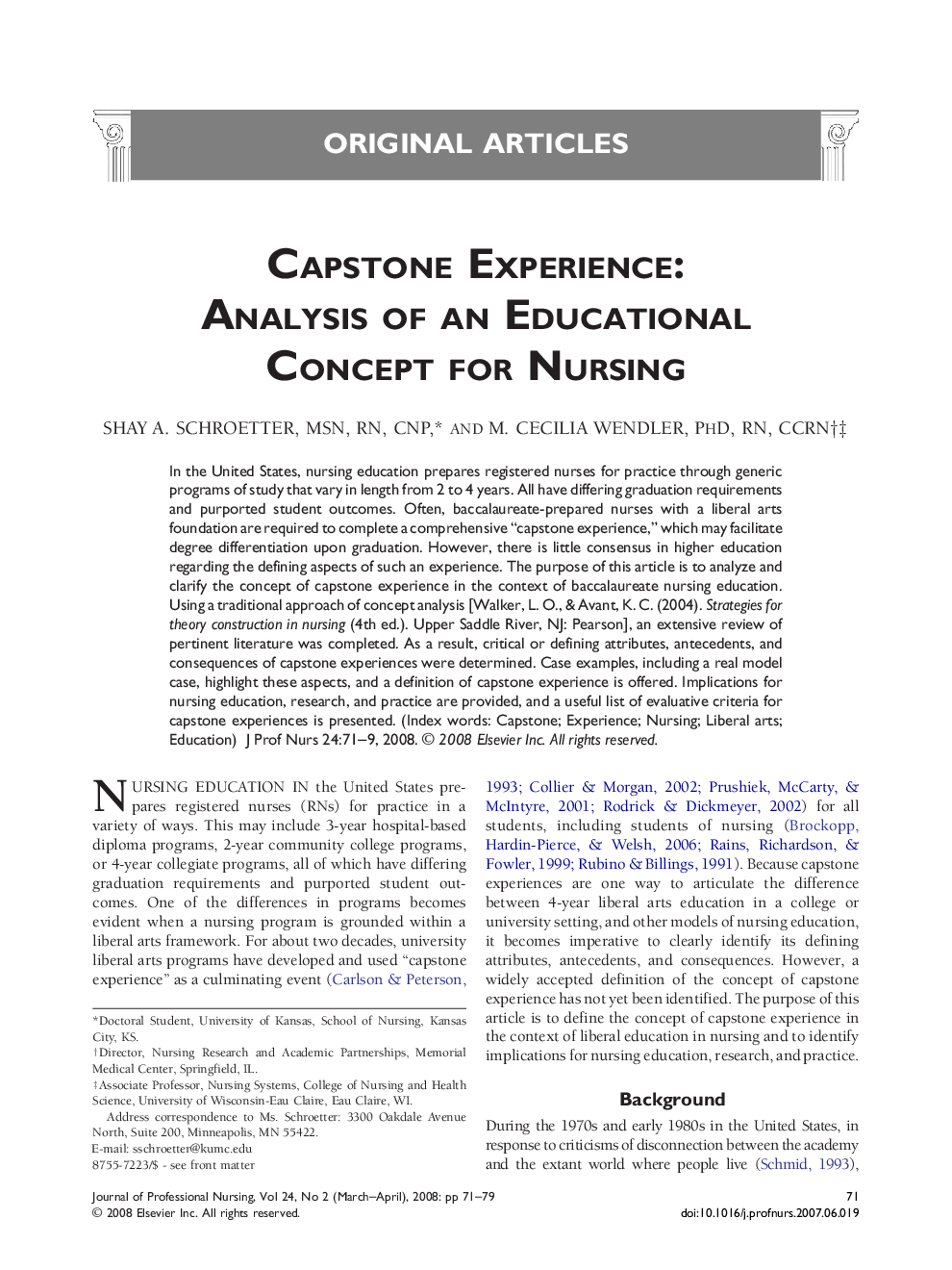| Article ID | Journal | Published Year | Pages | File Type |
|---|---|---|---|---|
| 2667812 | Journal of Professional Nursing | 2008 | 9 Pages |
In the United States, nursing education prepares registered nurses for practice through generic programs of study that vary in length from 2 to 4 years. All have differing graduation requirements and purported student outcomes. Often, baccalaureate-prepared nurses with a liberal arts foundation are required to complete a comprehensive “capstone experience,” which may facilitate degree differentiation upon graduation. However, there is little consensus in higher education regarding the defining aspects of such an experience. The purpose of this article is to analyze and clarify the concept of capstone experience in the context of baccalaureate nursing education. Using a traditional approach of concept analysis [Walker, L. O., & Avant, K. C. (2004). Strategies for theory construction in nursing (4th ed.). Upper Saddle River, NJ: Pearson], an extensive review of pertinent literature was completed. As a result, critical or defining attributes, antecedents, and consequences of capstone experiences were determined. Case examples, including a real model case, highlight these aspects, and a definition of capstone experience is offered. Implications for nursing education, research, and practice are provided, and a useful list of evaluative criteria for capstone experiences is presented.
